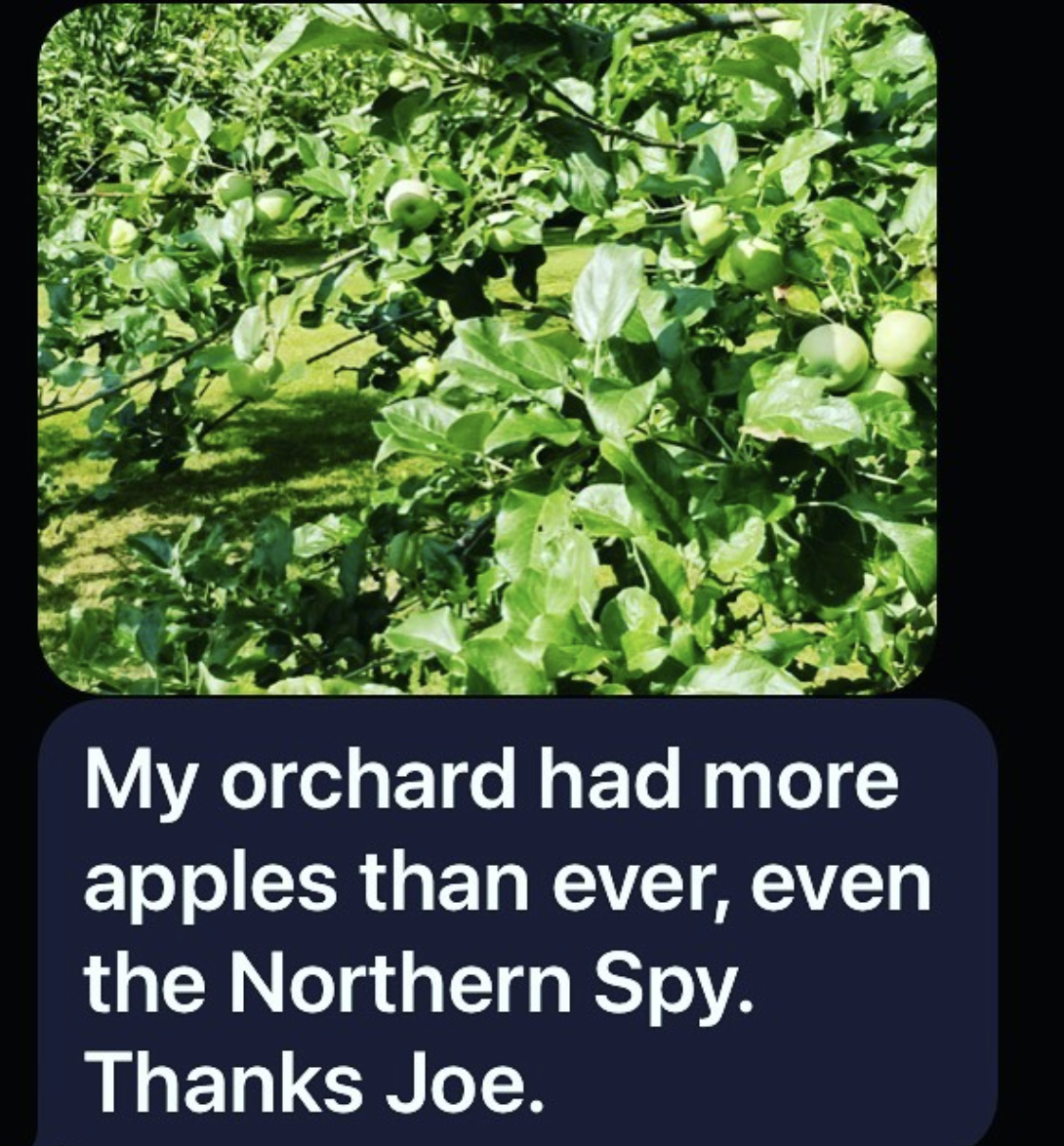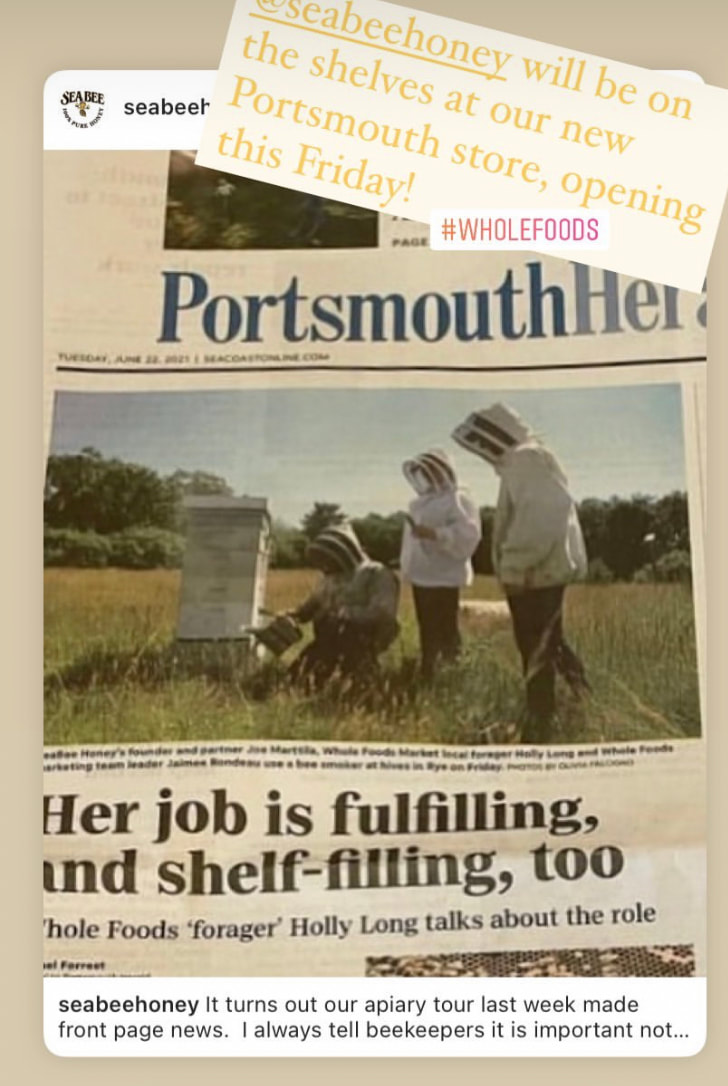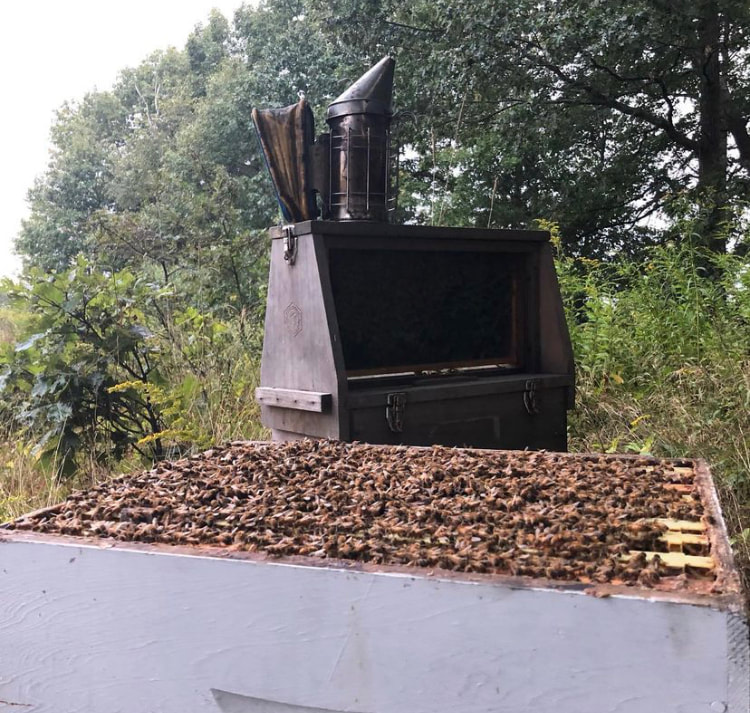|
Recently, we had a great Zoom meeting with the folks from the Great Island Garden Club of New Castle, NH. The Great Island Garden Club's mission is as follows:
The purpose of the Great Island Garden Club shall be to stimulate the knowledge and love of gardening and horticulture while assisting in community beautification. How great is that for a mission statement? We provided an overview of our company and discussed the challenges of keeping bees here in the Seacoast of New Hampshire. We did discuss the success of the hives we have located in and around New Castle and how we have worked with the schools in the area on education initiatives. It was a great event and we appreciated the excellent questions from the group.
0 Comments
Recently, we had a request to place an educational hive at a school we have provided pollination presentations to in the past. The Little Harbour Elementary School is located in Portsmouth, NH and borders Little Harbor here on the New Hampshire Seacoast. The group at the school wanted a hive on site to help with their STEM education program. After meeting with the team at the school we decided to place an existing hive along the shoreline that borders the school.
The hive location required us transporting the full hive from another site, across a field, down some stairs on a dock and along some wet marsh. The move was performed during the weekend when no teachers or faculty would be around. The bees took to the location very well and were able to work a large area of golden rod and aster that surround the harbor. Since this post, we have had over 5 presentations from grades 1-5 where we used the bees from this hive to help educate the students. We look forward to working with LHS and our other schools in the coming year. The Portsmouth Herald's Olivia Falcigno took some great photos on a recent visit to one of our bee yards and the SeaBee Honey House in Rye, NH.
www.seacoastonline.com/picture-gallery/news/2021/06/21/seabee-honeys-apiaries-rye/7746744002/ Our bees have been pollinating various orchards in the seacoast for many years now. However, we had an orchard owner request help recently with his heirloom orchard. Many of the trees had produced sporadic fruit but one tree had not produced fruit for over 20 years.
The barren tree was a Northern Spy which is an older variety and renowned for its fit for desserts and pie. This particular tree had partner pollinators in the orchard but likely not any successful pollination runs by native pollinators or any local honey bees. We even had hives located within a 1/4 mile from this orchard but none of the hives sent foragers that far out. This makes sense since when this tree blossomed there was plenty of forage closer to the hives and there was no need for long trips to this secluded orchard. To get this tree to produce apples we had a simple solution. We only needed to drop a hive in this secluded orchard that was found in a well-manicured clearing surrounded by forest. Placing a hive directly under this tree made a big difference and once the blossoms were out on the Northern Spy our bees were on them gathering pollen and nectar from this tree and surrounding pollination partners. How did they do? This month we received a call and text from the orchard owner who sent us this photo of a well-pollinated Northern Spy with ample fruit. It was a pleasure hosting our friends from Whole Foods Market and the Portsmouth Herald. We provided a tour of the SeaBee Honey House and one of our apiaries in Rye, NH. We also made the front page of the paper. Thanks everyone!
@wholefoods @seabeehoney @portsmouthherald Prior to the opening of the Portsmouth Whole Foods Store - Food Industry Network interviewed Holly Long from Whole Foods and she discussed why they selected SeaBee Honey for their store.
Hyper Local is when we have honey close to the retailer. As many of you know we spread our hives around the Seacoast of New Hampshire and beyond. Each hive's honey is processed individually and traceable back to the hive. Whole Foods is aligned with this our approach and is one of the reasons we decided to partner with them in their new Portsmouth store. Does Whole Foods currently have a presence in the Portsmouth area? Curious as to how you approach the forager process when Whole Foods is opening a new store. How do you find and foster new brands in each market? We currently have two existing stores in New Hampshire as well as a store in Portland, Maine, that is not too far away from Portsmouth, but this is our first store on the seacoast of New Hampshire. For new stores, we typically try to forage for items from the immediate local area, but we also look to highlight existing local suppliers that we already have amazing relationships with. For our Portsmouth store, we’ve done just that. We have some hyperlocal honey from a new supplier, SeaBee Honey.... The rest of the interview can be viewed with the link below. https://foodindustrynetwork.com/a-whole-foods-forager-provides-sneak-peek-of-new-portsmouth-store/ Bumblebees are great native pollinators and they are best suited to pollinate many of our native crops (squash, blueberry, pumpkins and blueberries). Unlike honeybee hives, bumblebee hives are not perennial and they break down in the Fall season. When the hive disperses the queens in the hive will find a burrow to hibernate in the winter. We find many locations that are suitable for queen bumble bees to spend the winter but this small burrow under a large pine was ideal for this queen here in Rye. Watch as she emerges to take one of her first flights for the season and start the process of building a new hive. #easternbumblebee #seabeehoney #nativepollinator What to do if your honey has crystallizedWe recently had a customer that told us they threw out their honey because it had crystallized. "Did it go bad?" they asked. The answer is a resounding "No". Honey does not go bad when it crystallizes it just changes from a liquid to a solid. The customer only needed to gently reheat the honey in a double boiler at a temperature of 90 F and it would return to its liquid state. Let's cover crystallization and why it occurs:
Why does honey crystallize? Honey is extracted in a liquid form and SeaBee Honey is no exception. Our honey is extracted in our specialty-built honey house where it is spun from the honeycomb and then gently heated before it is bottled and packaged. Honey has two main sugars that drive the crystallization process: glucose and fructose. When glucose molecules separate from the water in the honey, they begin to form a crystal. That crystal will be the initial seed for other crystals to build upon. If honey has a higher portion of glucose compared to fructose, it will crystallize faster. For example, dandelion honey has high glucose to fructose ratio and will crystallize very quickly. Other factors such as temperature and pollen content also help expedite the crystallization process. The cooler the temperature the quicker the crystallization will occur. If the seed crystal is larger the resulting crystallization will be larger and have the consistency of rock candy. Finer seed crystals will result in a smoother consistency that has a butter-like texture. We call this honey whipped or creamed honey. We do make some crystallized honey in the Fall season, and it is very popular with many of our customers. If your honey sits in your cupboard for a few years, it will crystallize or partially crystallize. Again, this honey is unlikely to have gone bad. There isn't enough water in the honey to have it spoil but there may be cases where you have honey that has fermented. This is also very rare but can occur if a wild yeast found in honey has started the fermentation process. This can occur if the storage area is over 80F, and you will know it has fermented by smell and taste. To prevent any potential fermentation, it is recommended to store your jar in a cool, dry location out of direct sunlight. It does not need to be refrigerated. If your honey has crystallized thoroughly, give it a try and if it has a smooth spreadable consistency, keep it as a spread and enjoy your own whipped honey. It will last indefinitely. 12/1/2016 Seabee Honey to Present at Rye Public Library Topic: Bee Population health and ClimateRead NowWe will be presenting a session on Bee Population Health and Climate at the Rye Public Library on December 6, 2016. The event is once again hosted by the League of Conservation Voters and the details are as follows:
JOIN THE LEAGUE OF CONSERVATION VOTERS and SEABEE HONEY for A DISCUSSION TO HIGHLIGHT THE IMPACT OF CLIMATE CHANGE ON OUR BEE POPULATION Monday, December 5th, 2016 5:30 PM Rye Public Library 581 Washington Road Rye, New Hampshire Bees are losing their habitat due to climate change – changing temperatures and weather conditions has restricted the areas where bees can survive. While climate change threatens many species, bees and other pollinators have received special attention because of the important role they play in agriculture and supporting our food supply. Learn about the important role that bees play in our ecosystem and agriculture and how we can take climate change action! The program will include a discussion with Joe Marttila, owner of SeaBee Honey and manager of apiaries at many New Hampshire farms and orchards. Joe is an experienced beekeeper and will provide background on bee behavior and their importance to our ecosystem and agricultural heritage. For the last couple of years, we have been working with the Rye Conservation Corp and Rockingham County Conservation District to provide pollination education to the community and area schools. Recently, we had students from the Rye Junior High come down to tour the farm, harvest pumpkins they planted in the Spring, and tour the apiary.
We love working with the students and we bring out our charts and educational materials whenever we can to help demonstrate the importance of pollinators. One of the most effective learning aids is the observation hive that allows us to pull a frame of bees from an existing hive and place it in a protected plexiglass construct. This allows us to show the different types of bees, honey, brood, and pollen. Everyone loves to see the queen so we are always sure to have her in the observation hive. If we capture just the right bees at the right time we can demonstrate the bee dance used by foraging bees to communicate the location and type of pollen/honey they have found. While the queen is always a hit a dancing bee is one of the most amazing sites that we can show to a group of students. If you are interested in having a honey bee overview or visit to an apiary please reach out to us to learn how we can make it happen. |
Details
SEABEE HONEY BLOGAuthorA beekeeper in New Hampshire [email protected] Archives
December 2023
Categories
All
|




 RSS Feed
RSS Feed